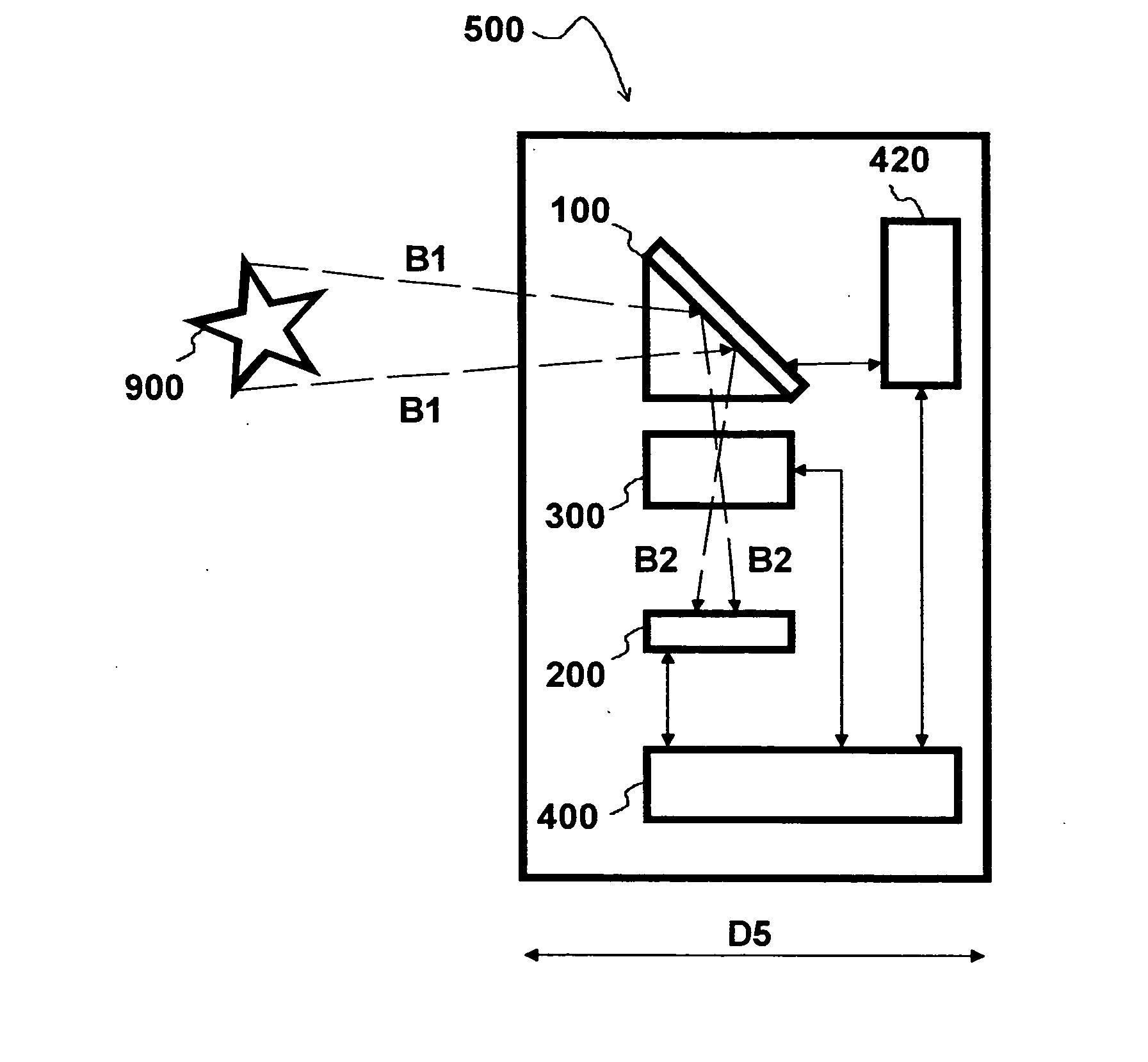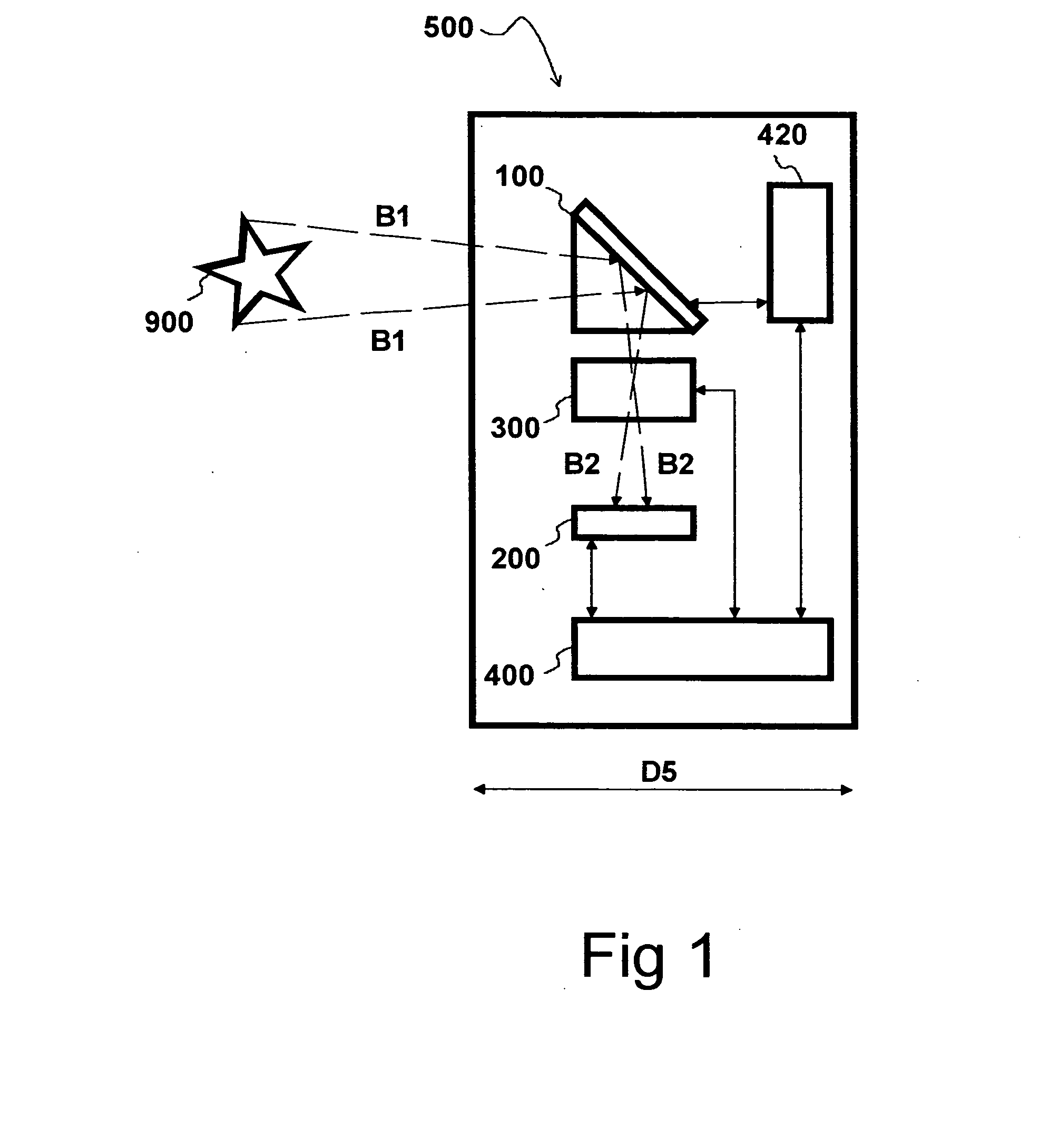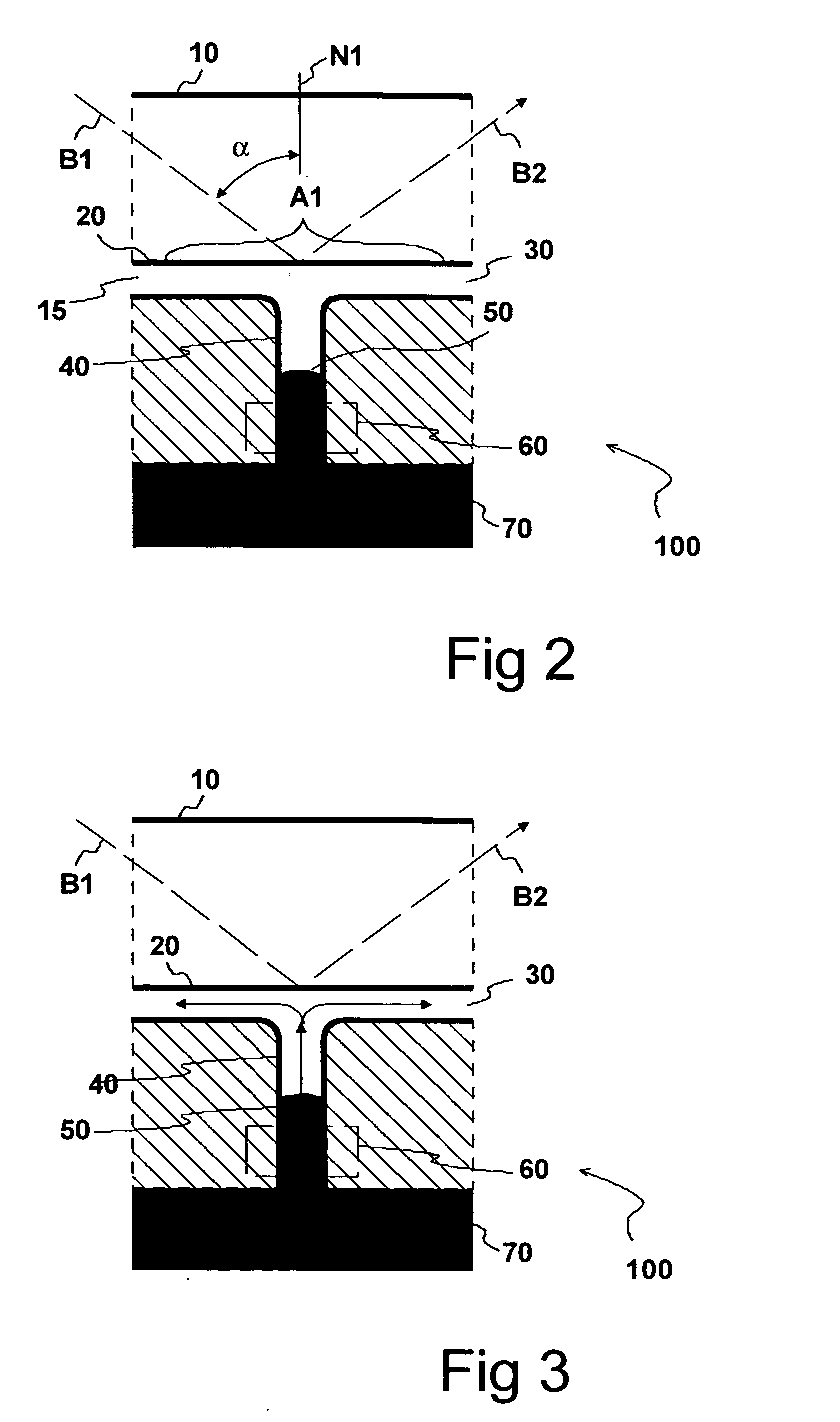Optical shutter for miniature cameras
a miniature camera and optical shutter technology, applied in the field of optical shutters for miniature cameras, can solve the problems of inability to hold and store signals, image artifacts, complex mechanical structure, etc., and achieve the effect of increasing the operating speed of the shutter, wide active area, and increasing the shutter operating speed
- Summary
- Abstract
- Description
- Claims
- Application Information
AI Technical Summary
Benefits of technology
Problems solved by technology
Method used
Image
Examples
Embodiment Construction
[0066] The optical device 500 shown in FIG. 1 comprises an imaging system. The imaging system comprises imaging optics 300 which are adapted to focus light rays B1 coming from a target 900 to an image sensor 200 to form an image of the target 900. The optical exposure of the image sensor 200 is at least partially defined by the shutter 100.
[0067] When the shutter 100 is set to a reflecting state, the reflected rays B2 are guided to the image sensor 200 through the imaging optics 300. When the shutter 100 is set to a non-reflecting state, the light rays B1 are absorbed in the shutter 100.
[0068] The imaging operation is at least partially controlled by a control unit 400, which directly or indirectly controls the focusing and the aperture of the imaging optics 300, the shutter 100 and the image sensor 200. The device 500 may further comprise a driver unit 420 to provide voltage amplification and / or digital-to-analog conversion of signals sent to the shutter 100.
[0069] The imaging o...
PUM
 Login to View More
Login to View More Abstract
Description
Claims
Application Information
 Login to View More
Login to View More - R&D
- Intellectual Property
- Life Sciences
- Materials
- Tech Scout
- Unparalleled Data Quality
- Higher Quality Content
- 60% Fewer Hallucinations
Browse by: Latest US Patents, China's latest patents, Technical Efficacy Thesaurus, Application Domain, Technology Topic, Popular Technical Reports.
© 2025 PatSnap. All rights reserved.Legal|Privacy policy|Modern Slavery Act Transparency Statement|Sitemap|About US| Contact US: help@patsnap.com



